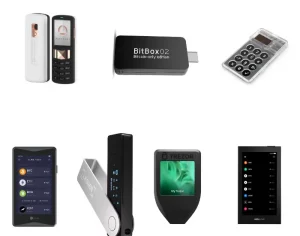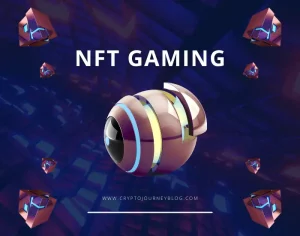
Ethereum has revolutionized blockchain tech with its decentralized and flexible core. Dig deeper and you’ll uncover the intricate ins and outs of this groundbreaking technology.
Smart contracts are at the center of Ethereum. They’re self-executing agreements with set rules, offering a secure and transparent platform for business dealings sans middleman. This innovation has opened up novel uses in finance, supply chain management, and voting systems.
Ethereum is also programmable. Developers can code decentralized apps (DApps) atop the platform using Solidity. These DApps offer more than just financial transactions – think decentralized exchanges, gaming platforms, and more. With Ethereum’s vast ecosystem and active dev community, the possibilities are endless.
Pro Tip: To get the most out of Ethereum and smart contracts, it’s key to understand the fundamentals and stay on top of the space’s progress. Learning and experimenting will reveal new opportunities to leverage Ethereum’s potential for transforming many industries around the world.
What is Ethereum?
Ethereum is a decentralized blockchain platform. It lets people create smart contracts. These are digital agreements that can self-execute based on pre-set conditions. No need for intermediaries like banks or governments! Ethereum goes beyond Bitcoin’s scope of transactions. It offers an open-source platform to build and execute complex applications using a Turing-complete programming language. It drives innovation and collaboration among developers all over the world.
Ethereum introduces smart contracts. They automate processes and eliminate middlemen, making sure all transactions are secure and transparent. Moreover, it supports DeFi apps such as lending platforms and decentralized exchanges.
Ethereum is crucial for our modern digital landscape. It can disrupt traditional systems and empower individuals with DApps. Knowing about Ethereum will help us shape our future. Get ready to unlock endless possibilities by embracing this technology now!
The Role of Smart Contracts
Smart contracts are a major part of the Ethereum world. These digital agreements execute without help, making transactions secure and reliable. They also shorten operations and make sure everything is transparent in different industries.
Let’s look at the role of smart contracts with this table:
| Finance | Handle financial transactions accurately and cheaply. |
| Supply Chain | Automate goods tracking so delays are shorter and products are genuine. |
| Healthcare | Protect patient data by decentralizing it and let medical systems interact. |
| Real Estate | Transfer properties quickly without lawyers or brokers. |
Smart contracts offer more than just these benefits. They also provide greater security, reduce fraud, make processes quicker, and simplify compliance. Plus, they work based on given criteria. This means companies in various areas can work safe and smooth.
To take advantage of all this, it’s important to go beyond traditional contract frameworks. Or else you’ll miss out on innovation, cost savings, and staying ahead of competitors.
Technologies are changing things quickly, so you need to adjust to do business. Leverage smart contracts and you can be at the forefront of this digital age. Unlock possibilities and access a world of opportunities with the help of Ethereum’s foundation: smart contracts. Get exploring now!
How Ethereum Works
Ethereum is a decentralized platform powered by computers. It enables developers to build and deploy smart contracts. These agreements execute themselves, eliminating the need for middlemen.
Let’s explore Ethereum’s key components and processes:
| Components | Description |
|---|---|
| Blockchain | A distributed ledger recording all transactions and smart contracts |
| Smart Contracts | Self-executing agreements with pre-defined rules |
| Nodes | Computers within Ethereum’s network that validate transactions and keep the blockchain |
| Consensus Mechanism | Eth2, a proof-of-stake (PoS) consensus, is used to ensure agreement among nodes via staking |
| Gas | A unit measuring the effort needed to execute transactions and contracts |
| Virtual Machine (EVM) | A runtime environment to execute smart contracts on Ethereum |
Ethereum also offers features like DeFi, NFTs, and DApps. These have been instrumental in its growth and popularity.
An interesting example of Ethereum is the 2017 sale of Beeple’s NFT artwork for $69 million on the blockchain. It highlighted the potential of NFTs and Ethereum’s role in empowering artists worldwide.
Ethereum has changed how smart contracts operate. It offers secure, efficient, and transparent solutions to multiple industries.
Advantages of Ethereum
Ethereum boasts numerous advantages that make it a top choice for smart contracts. Its decentralized structure offers transparency and eliminates middlemen, resulting in cost and time savings. Plus, it boasts robust encryption protocols, offering a high level of security.
Moreover, developers benefit from its open-source nature, as they can create and deploy their own applications quickly. Plus, its scalability is impressive – capable of handling thousands of transactions per second!
These benefits demonstrate why Ethereum is so popular. It provides transparency and security, supports rapid development, and has impressive scalability. To further leverage these advantages, Ethereum should:
- Continuously develop and update to address any potential vulnerabilities.
- Educate users on securely managing their private keys.
- Partner with various industries to showcase its use cases and expand adoption.
Through these efforts, Ethereum can remain a leader in the blockchain space. These suggestions will help ensure its long-term success with smart contracts.
Use Cases of Ethereum
Ethereum is the foundation of smart contracts, giving various uses in many areas. Here are some of its applications:
| No. | Application |
|---|---|
| 1 | DeFi: Ethereum revolutionized the finance industry by enabling platforms like lending, borrowing and decentralized exchanges. |
| 2 | Tokenization: Ethereum allows digital assets to be created and managed with tokens. This creates chances for crowdfunding, loyalty programs and asset representation. |
| 3 | Supply Chain Management: Ethereum records transactions on its blockchain which promotes transparency and traceability in supply chains. |
| 4 | Gaming: Ethereum-based platforms let users create and trade non-fungible tokens (NFTs). These have become popular in gaming for unique in-game assets and collectibles. |
| 5 | Identity Management: Ethereum empowers users to have self-sovereign identities which controls their personal info while ensuring authentication and security. |
| 6 | Energy Sector: Blockchain tech powered by Ethereum enables peer-to-peer energy trading, encouraging renewable energy and giving consumers power. |
| 7 | Governance Systems: Ethereum can be used to make voting systems with smart contracts to guarantee fairness and accountability. |
These are only a few of Ethereum’s transformations across multiple sectors.
Vitalik Buterin, a Canadian-Russian programmer, started Ethereum in 2013 as a way to build on Bitcoin’s idea. It launched on July 30, 2015, with its own cryptocurrency, Ether (ETH). Since then, Ethereum has grown due to its potential for reshaping traditional systems.
Challenges and Concerns
Ethereum and smart contracts come with unique challenges and concerns. Security is a key concern – any flaws in a contract can lead to major financial losses. Plus, scalability is a challenge – the current infrastructure can’t handle high transaction volumes.
Let’s break down the challenges and concerns further using a table:
| Challenge/Concern | Description |
|---|---|
| Security | Smart contracts can have bugs or hacks leading to huge losses. |
| Scalability | Ethereum’s blockchain has trouble scaling up due to processing power or network congestion. This results in high fees and slow processing. |
| Regulations | Decentralization creates legal complexity with existing regulations. Governments need to regulate while promoting innovation and security. |
Interoperability between blockchains is another challenge. Seamless communication between networks is needed for the success of smart contracts.
Another factor not mentioned yet is environmental sustainability. Mining Ethereum uses a lot of energy, raising carbon footprint questions. Solutions are needed for Ethereum’s growth without harming the environment.
For example, a recent DeFi platform exploit drained millions of dollars from user accounts. This highlights the need for more security within the Ethereum ecosystem.
The Ethereum and smart contracts community needs to address these challenges creatively to ensure success and long-term viability. Technology advances, so it’s essential to address these issues together.
Future Outlook and Potential Developments
The future of Ethereum is full of exciting potential! Let’s look at how some key aspects will shape its development. These include:
- Scaling solutions like optimistic rollups
- Interoperability between different blockchains
- Increased privacy features
- Transitioning to a more energy-efficient PoS consensus mechanism
Moreover, Ethereum could grow with tokenization of real estate and intellectual property, as well as DeFi integration with traditional finance. To make the most of these opportunities, here’s what can be done:
- Improve user experience by making wallets easier to use and transactions simpler.
- Collaborate with other blockchains to set up interoperability standards.
- Invest in security research and audits to identify and prevent potential attacks.
By focusing on scalability, interoperability, privacy, and sustainability, Ethereum can become the premier platform for smart contract innovation. With these suggestions, the future for smart contracts looks incredibly bright!
Conclusion
Ethereum has transformed the digital realm with its smart contracts. Its decentralized nature and self-executing contracts unlock endless opportunities in many industries. Finance, supply chain management, and more – Ethereum’s platform provides a safe and efficient way to do business.
Ethereum is programmable. With its Turing-complete language, developers can craft custom contracts to meet specific needs. This allows complex applications to be built, leading to innovation.
Further, blockchain technology offers transparency and immutability. All Ethereum transactions are recorded on a public ledger, removing the need for middlemen and reducing costs. Trust among participants is also increased.
Ethereum’s DApps are disrupting traditional industries. These apps provide features like decentralized finance (DeFi), NFTs, and DEXs. They give individuals control over their assets and digital identities.
A perfect example of Ethereum’s power is the story of a farmer who used smart contracts to improve his business. He leveraged Ethereum-based DApps to access fairer markets, secure loans, and track his supply chain. This efficiency increased his profits and reduced waste.
Frequently Asked Questions
1. What is Ethereum?
Ethereum is an open-source blockchain platform that enables developers to build decentralized applications (DApps) and deploy smart contracts.
2. What are smart contracts?
Smart contracts are self-executing contracts with the terms of the agreement directly written into code. They automatically execute when predefined conditions are met, eliminating the need for intermediaries.
3. How does Ethereum support smart contracts?
Ethereum provides a decentralized virtual machine, called the Ethereum Virtual Machine (EVM), which executes code on the blockchain. Smart contracts are deployed on the Ethereum network and can interact with other smart contracts and DApps.
4. What are the advantages of using Ethereum for smart contracts?
Ethereum offers several advantages for smart contracts, including transparency, immutability, and decentralization. It allows for the creation of trustless applications that operate without the need for a central authority.
5. Can anyone deploy a smart contract on Ethereum?
Yes, anyone can deploy a smart contract on the Ethereum network. However, the deployment requires a certain amount of ether (ETH) to be paid as a fee to the network, known as gas.
6. What are some real-world applications of Ethereum’s smart contracts?
Ethereum’s smart contracts have various applications, such as decentralized finance (DeFi), supply chain management, voting systems, and digital identity verification.



